State Task Force Efforts
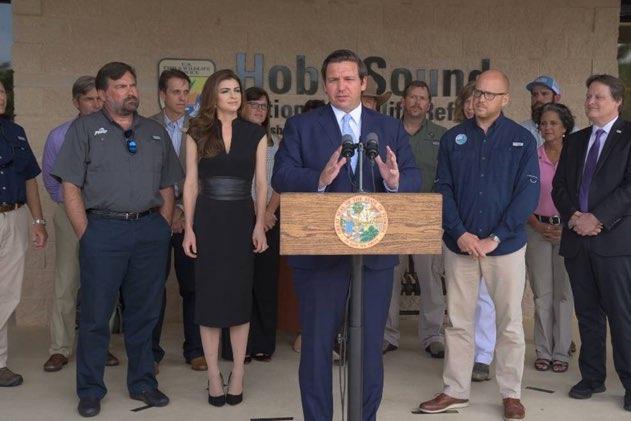
Blue-Green Algae Task Force
Governor DeSantis took a major step forward in combating Blue-Green Algae within Florida through the creation of the Blue-Green Algae Task Force along with the appointment of its five members.
The Blue-Green Algae Task Force plays an important role in protecting Florida’s water and water-related resources. Each of the task force members is a nationally recognized and well-respected scholar. Their collective scientific expertise and input figures prominently in the department’s efforts to improve water quality throughout the state.
The Blue-Green Algae Task Force, through a deliberative and transparent process, will ensure that objective and sound science informs Florida’s environmental decision-making process. Input from the task force will be used to support key funding and restoration initiatives and guide regulatory changes that are needed to improve water quality for the benefit of all Floridians.
Questions or Comments? Register for Updates
Blue-Green Algae Task Force Consensus Document
UPCOMING MEETING
TBD
PREVIOUS MEETING(S)
-
June 4, 2024 - Agricultural Research and Best Management Practices
In-person and online.
UF/IFAS North Florida Research & Education Center - Suwannee Valley
8202 Country Road 417
Live Oak, FL 32060Presentation Materials:
-
Jan. 24, 2024 - Blue-Green Algae Task Force Research Groups on Vital Water Quality Topics
Online.
Presentation Materials
-
Sept. 20, 2023 - Identifying and Optimizing Projects in Basin Management Action Plan Areas
In-person and Online.
South Florida Water Management District
B-1 Auditorium
3301 Gun Club Road
West Palm Beach, FL 33406Presentation Materials
- Agenda
- Meeting Minutes
- Video Archive
- Presentations:
PRE-MEETING PRESENTATION
Sept. 12, 2023 - Identifying and Optimizing Projects in Basin Management Action Plan Areas
Online.
Presentation Materials
-
June 20, 2023 - Identifying Nutrient Sources in Basin Management Action Plans
In-person and Online.
The Water School at Florida Gulf Coast University (Academic Building 9)
Room No. 106 - John and Dorothy Guigon Auditorium
10501 FGCU Blvd.
Fort Myers, FL 33965Meeting Materials
- Agenda
- Meeting Minutes
- Video Archive:
- Presentations:
PRE-MEETING PRESENTATION
May 30, 2023 - Identifying Nutrient Sources in Basin Management Action Plans
Online.
Presentation Materials
-
Feb. 1, 2023 - Progress to Date and Next Steps
In-person and Online.
Florida International University’s Biscayne Bay Campus
Wolfe University Center, Room 155
3000 N.E. 151st St.
North Miami Beach, FL 33181Meeting Materials
-
Aug. 4, 2022 – Water Quality Restoration Plans
In-person and Online.
Johnson Education Center
Florida Atlantic University, Harbor Branch Oceanographic Institute
5600 N US Highway 1
Fort Pierce, FL 34946Meeting Materials
-
Feb. 10, 2022 - Onsite Sewage Treatment and Disposal Systems
In-person and Online.
University of Florida, Straughn IFAS Extension Professional Development Center Ballroom
2142 Shealy Dr.
Gainesville FL 32608Meeting Materials
-
Dec. 8, 2021 - Data Collection and Predictive Modeling
In-person and online
Johnson Education Center
Florida Atlantic University, Harbor Branch Oceanographic Institute
5600 N US Highway 1
Fort Pierce, FL 34946Meeting Materials
-
Aug. 23, 2021 – Virtual Meeting – Updates on the Stormwater Technical Advisory Committee
Meeting Materials
-
June 23, 2021 – Innovative Technology
In-person and online
South Florida Water Management District
B-1 Building
3301 Gun Club Rd., West Palm Beach, FL 33406Meeting Materials
-
Nov. 19, 2020 – USACE Algal Bloom Risk Metric
Virtual Meeting
Meeting Materials
-
July 29, 2020 – Recreational Advisories and Signage
Virtual Meeting
Relevant to the Task Force’s discussion, you may review EPA’s 2019 Recommended Human Health Recreational Ambient Water Quality Criteria or Swimming Advisories for Microcystins and Cylindrospermopsin, the associated fact sheet and additional referenced materials.
Archived Video:
-
Oct. 7, 2019 - Discussion of Draft Consensus Document and Recommendations
University of Florida
Martin Levin Advocacy Center, Room 106
309 Village Dr., Gainesville, FL 32611 -
Sept. 25, 2019 - Discussion of Draft Consensus Document and Recommendations
Florida Gulf Coast University, Kapnick Center
4940 Bayshore Dr., Naples, FL 34112- Agenda
- Video Archive:
- Meeting Minutes
-
Sept. 24, 2019 - Public Health and Stormwater Management
Due to Hurricane Dorian, the Florida Department of Environmental Protection postponed the fourth meeting of the Blue-Green Algae Task Force (Rescheduled from Friday, Aug. 30, 2019 due to Hurricane Dorian).
Florida Gulf Coast University, Kapnick Center
4940 Bayshore Dr., Naples, FL 34112Video Archive
-
Aug. 30, 2019 – Rescheduled to Sept. 24 due to Hurricane Dorian
University of Florida Levin College of Law, Martin Levin Advocacy Center, Room 106
309 Village Dr., Gainesville, FL 32611 -
Aug. 1, 2019 – Innovative Technologies, Septic Tanks and Sanitary Sewer Overflows
Florida Atlantic University
Harbor Branch Oceanographic Institute
Johnson Education Center
5600 US 1 North, Fort Pierce, FL 34946Video Archive:
Meeting Materials:
-
July 1, 2019 – Basin Management Action Plans & Agricultural Best Management Practices
Lee County School Board
2855 Colonial Blvd., Fort Myers, FL 33901Meeting Materials:
- WAM Land Use Map
- Load Estimation Tool Summaries
- Septic Tanks LOW
- WWTF Map 2019
- Wastewater Sites
- Adopted BMAP Projects
- All Everglades Projects Map June 2019
- Restoration Strategies June 2019
- WIN Stations LOW
- Lake Okeechobee WIN Result Summary
- SFWMD June 2019 CMT Detail Report
- FDACS Cost Share Information
- Request for Information on Methods to Prevent, Combat or Clean up Harmful Algal Blooms
- June 12, 2019 – Inaugural Meeting
Task Force Members
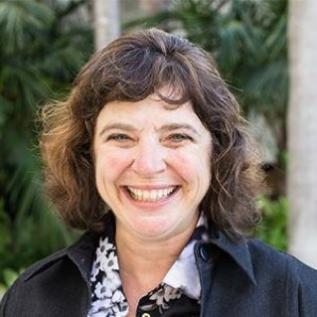
Dr. Evelyn Gaiser, Florida International University
Dr. Evelyn Gaiser holds a bachelor’s degree in biology from Kent State University, a master’s in animal ecology from Iowa State University and a doctorate in ecology from the University of Georgia.
Dr. Gaiser is an aquatic ecologist whose research is focused on understanding how algae can be used as “sentinels” of the effects of long-term changes in climate and land-use in aquatic ecosystems. While her work focuses on aquatic systems of South Florida, she and her students also conduct international studies to expand findings contextually.
Research in Dr. Gaiser’s lab has informed the progress of Everglades restoration and is integrated into the Florida Coastal Everglades Long-Term Ecological Research program, which she has led since 2007.
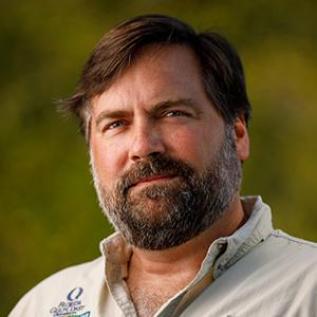
Dr. Michael Parsons, Florida Gulf Coast University
Dr. Michael Parsons is a professor of marine science at Florida Gulf Coast University and director of the Coastal Watershed Institute and Vester Field Station. He was a state of Louisiana Board of Regents Fellow and received his doctorate from Louisiana State University in 1996 in biological oceanography.
Dr. Parsons received the Outstanding Mentor award from the University of Hawaii-Hilo in 2001 and the Senior Faculty Scholarship Excellence Award at Florida Gulf Coast University in 2013.
His ultimate goal is to educate students and the public in the field of coastal ecology, particularly in terms of how human activities impact ecosystem health, as well as how these impacts in turn influence human health and well-being.
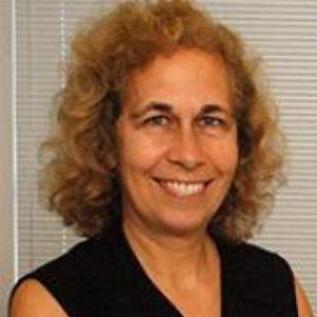
Dr. Valerie Paul, Smithsonian
Dr. Valerie Paul has served as director of the Smithsonian Marine Station at Fort Pierce, Florida, since 2002. She received her B.A. from the University of California San Diego in 1979 with majors in Biology and Studies in Chemical Ecology and her Ph.D. in Marine Biology in 1985 from the Scripps Institution of Oceanography at UC San Diego. Valerie joined the faculty of the University of Guam Marine Laboratory in 1985, served as director of the laboratory from 1991-1994 and as full Professor from 1993-2002.
Valerie's research interests include marine chemical ecology, marine plant-herbivore interactions, coral reef ecology, harmful algal blooms and marine natural products. She studies the ecological roles of marine toxins and other bioactive compounds (natural products) from marine plants and animals and their natural functions in the marine environment.
She has specialized in studying the ecology and chemistry of blue-green algae (cyanobacteria) blooms, including looking for beneficial biomedical uses of the compounds.
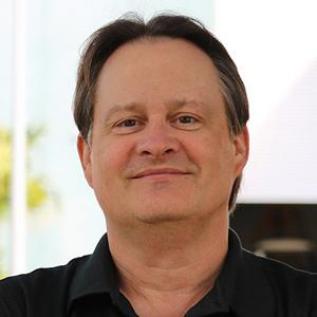
Dr. James Sullivan, Florida Atlantic University Harbor Branch
Dr. James Sullivan, executive director of FAU’s Harbor Branch, is an expert on marine ecosystem health. He earned his master’s and doctorate degrees in biological oceanography with specializations in phytoplankton physiology and ecology, as well as bio-optics and biophysics, from the University of Rhode Island Graduate School of Oceanography.
Dr. Sullivan’s research interests include biological and physical mechanisms that control the spatial-temporal dynamics of phytoplankton/zooplankton populations in the coastal oceans; harmful algal bloom (red tide) dynamics; bioluminescence in the ocean; and the development and use of optical and autonomous sampling instrumentation and analytical techniques needed to study these complex processes.
Former Task Force Members
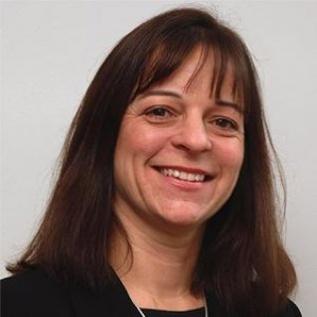
DR. WENDY GRAHAM
Dr. Wendy Graham served as a member of the Blue-Green Algae Task Force since its inception in 2019 until her appointment as Director for the Division of Research, Innovation, Synergies, and Education in the Directorate for Geosciences at the National Science Foundation (NSF) in Washington, D.C. in 2023.
Prior to her appointment to NSF, Dr. Graham was the Carl S. Swisher Eminent Scholar in Water Resources and the Director of the Water Institute at the University of Florida in Gainesville, FL. As founding Director of the Water Institute, Dr. Graham brought together talent from across the university to address complex water issues through innovative interdisciplinary research, education and public outreach programs. Dr. Graham's personal research focuses on integrated hydrologic modeling; groundwater resources evaluation and remediation; evaluation of impacts of agricultural production on surface and groundwater quality; evaluation of impacts of climate variability and climate change on hydrologic systems; and stochastic modeling and data assimilation. Dr. Graham holds a B.S. in environmental engineering from the University of Florida and a Ph.D. in civil engineering from the Massachusetts Institute of Technology.